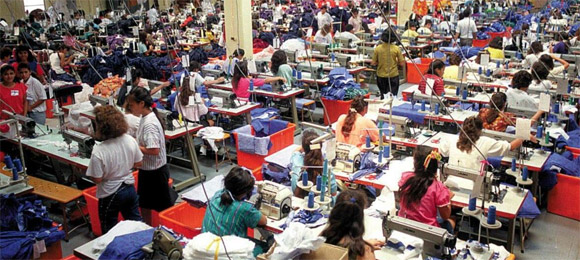Will Honduras’s new trade deal with Canada spur economic growth?

Forbes | 30.09.2014
Will Honduras’s new trade deal with Canada spur economic growth?
Nathaniel Parish Flannery
Forbes Contributor
Canada and Honduras now have a free trade pact. In a recent article for The PanAm Post, Adriana Peralta explained, “After a decade of negotiations, Canada and Honduras have finally achieved a bilateral free-trade agreement (FTA), including tariff-free status for 98 percent of goods categories. The agreement is set to go into force on October 1, given a memorandum of understanding, signed on September 15 by Erin O’Toole of Canada’s Ministry of International Trade and Sofia Cerrato, Honduras’s ambassador to Canada.”
Honduras’s Vice-Minister of Industry and Commerce said, “It was a deal that widely sought after just as much by the Honduran business community as the Canadian [one].”
Commenting on the deal, Canada’s International Trade Minister Ed Fast explained that his “government understands that trade and investment are the twin engines of the global economy that lead to more growth, the creation of good jobs and greater prosperity. That’s why we continue to open new markets for our exporters around the world. In Latin America alone, Canada now has six free trade agreements in place.”
According to Honduran newspaper La Tribuna, “trade between Honduras and Canada increased by 87 precent between 2009 and 2013. The balance of trade between the two countries is positive for Honduras with 228 million dollars of exports and 185 million in imports to our country.”
Contrary to Ed Fast’s declaration however, rising levels of trade have not led to increased prosperity in Honduras.
Honduras has focused on an export-led development model and the results have been underwhelming. A new plan to allow private investors to create charter cities has also come under fire. In a recent blog for the Council on Hemispheric Affairs Kelly Morrison and Alexander J. Preiss explained, “many analysts counter that such zones would only make the rich richer, perpetuate oligarchic rule, facilitate corruption, and inhibit true democracy.”
In an article for Foreign Affairs, Lauren Carasik explains, “In theory, these charter cities are designed to spur widespread economic growth by allowing free enterprise to circumvent the country’s weak political institutions. In practice, however, ZEDEs seem likely to benefit only Honduras’ existing economic and political elites and foreign investors.”
Critics complain that the benefits of Honduras’s export-led development strategy benefit only a narrow section of the country’s elite. “Between 2010 and 2012, the conservative forces that controlled the national government drastically cut spending on public services, including housing, health care, and education. Extreme poverty rose by 26.3 percent; almost two-thirds of Hondurans now live below the poverty line,” Carasik explains.
Traditionally Honduras exported bananas and Chiquita still has major operations in the country. At the start of 2013, Fresh Del Monte Produce, a company with operations in Guatemala announced plans to buy more than $80 million dollars worth of bananas from Honduras. Honduras has also focused on maquiladora production—low value added factories. Hanes, for instance, operates just under 1.4 million square feet of property in Honduras. According to the company’s 2013 10-K, the company’s facilities in Honduras are bigger than its operations in China. Still, the benefits of Honduras recent economic development model haven’t reached a wide swath of the population.
In my recent Latin America comparison- I explained Honduras ”is heavily dependent on trade, with exports accounting for over half of its total GDP [and around] two thirds of the population lives below the poverty line.” Honduras already has a long history of exports. The country now needs to do a better job of stimulating internal market growth. Specializing in low-tech exports is not the best long term growth strategy.
In 2009, for instance, Nike and Adidas closed their operations in Honduras and moved to set up shop in Nicaragua. When the business model is based on controlling costs multinational companies can’t be persuaded to stick around. Honduras has yet to implement a economic development policies that translate into real income gains for a wide segment of its population. The new trade deal with Canada may bring some incremental short term benefits but it won’t spur a radical change in Honduras’ economic growth trajectory. Longstanding issues of weak government capacity and limited social spending still need to be addressed.
Follow me on Twitter: @LatAmLENS.





